When a black and white palette is induced in a film belonging to this digital age, it usually comes for a familiar reason. In a film like, say, Mank, it comes to induce that tightly-knit period the film is completely based upon. In a Lav Diaz film, however, it is for eschewing a sense of elegy and painting a distraught, multi-layered realist portrait of life. Now, if it exists in an A24 production, it blends into the extended aesthetic and becomes a part of the storytelling. The supremely excellent Rebecca Hall is also making an attempt to blend the monochrome into her storytelling aesthetic with her Sundance-premiered directorial debut Passing.
However, the reasons are extremely different from what you’ll imagine.
The concept of “passing” is a seemingly natural one. A person with a mixed racial upbringing, inheriting a lighter tone, does pass for white. However, anyone familiar with racism and its entire legacy is familiar with what sociological weight it carries. For someone living in another part of the world, I wasn’t mindful of the possible implications of such a simple word in the English language, and the ‘colour code’ it holds. Also, I do admit to reading about this hybrid of a cultural and racial historical entity before entering into the film. However, being fully aware of the film’s comprehensive backdrop and the fact that it is set in the times when all of this was having its peak moment, does nothing to spoil your viewing experience. In fact, that rather enhances it.
Related to Passing – 20 Best Black and White Movies of the 21st Century
This is also right where the immersive intellect of Passing fits in. The monochrome palette serves as a blurring of the lines. For a film partially focused on the skin tones and what it does to a human’s social standing, everyone looks just like different shades of the same colorless cell. It also goes on to show the sensitivity Rebecca takes from her nature. Thereby weaponizing it for her film’s overall impact to be heightened. The fact that Hall herself comes from a family that ‘passes’. Her grandfather was a black man who passed for a white and married in a white household. This only gives the central heart a heat of personality.
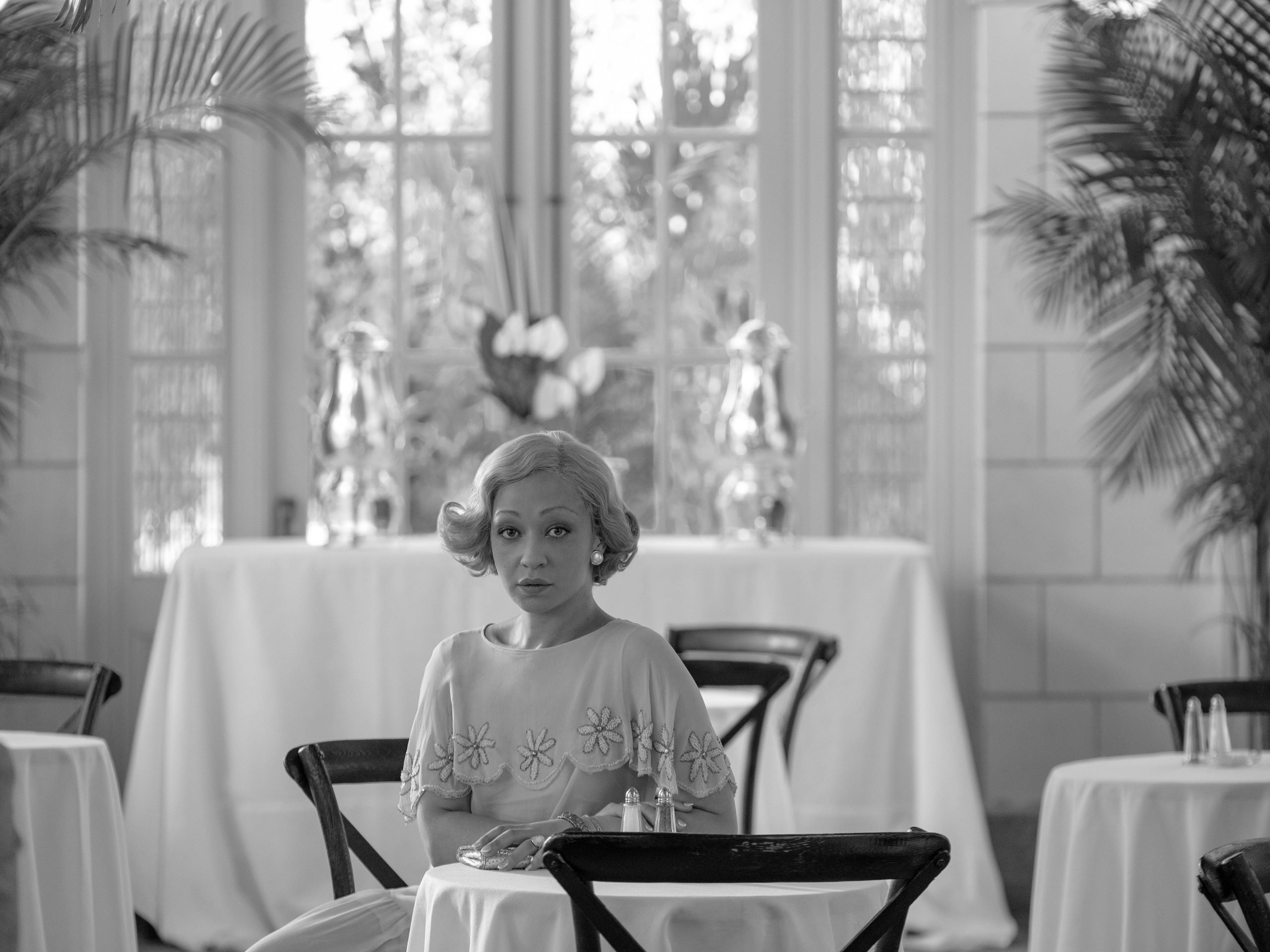
Adapted from a namesake 1829 novel by Nella Larsen, the film starts with Irene Redfields. She is a lighter-in-tone black woman who, in a gathering, reunites with her old friend Clare Bellow. Surprisingly, she has grown an unusually lighter skin tone, passing completely for a white. Clare also reveals that her husband John Bellow doesn’t know that, and the couple lives a pleasant life in Chicago. On the other hand, Irene embraces her racial identity and lives in Harlem with her husband and two boys. The film thereafter advances towards their relationship, where a previously lost friendship morphs into a deceptively intimate one, therefore obtaining a sense of relationship, drawing the curtains for Irene’s initially hesitant husband.
The story at its core is initially conventional. However, as the layers get peeled off before you, the film descends into an unexpectedly moving territory. The biggest strength of the film is that it intelligently masters the art of deception, scene-by-scene. One can make out without even reading the source material that this is a faithful adaptation on a narrative level. There’s something imperatively nineteen-twenties about the dialogues and the manner in which they are uttered. The visual style, beyond its immersive cinematography, is unmistakably old-world. However, somehow, with the cursory use of contemporary undertones here and there, it somehow becomes a powerful, timely parable on repression and how resistance disguises itself into different forms. Sometimes it’s in an organized movement, and on other occasions, in submission.
Also, Read – 10 Classic Black and White Horror Films That Still Hold Up
The cinematographic beauty of the film is a poetic knockout. Sunlight peeks through the tiny windows constructed by dark leaves. The screen cuts to an icy white with the climax. The interplay of lights darkens every time something pierces the marital bliss of Irene and Brian. Eduard Grau deserves props for these. The costumes by BlacKkKlansman-fame Marci Rodgers tells a story of its own, particularly when Clare wears her identity in her party wear. Props to the set decoration team for recreating the streets of Harlem of the early twentieth century. Marjorie Durand’s make-up skills give the characters, particularly the major one, a tantalizing flavour. Of course, one needs to applaud Rebecca over everyone, who adapts the narrative with exceptional intelligence and takes cues from foreign film movements to stage vital scenes.
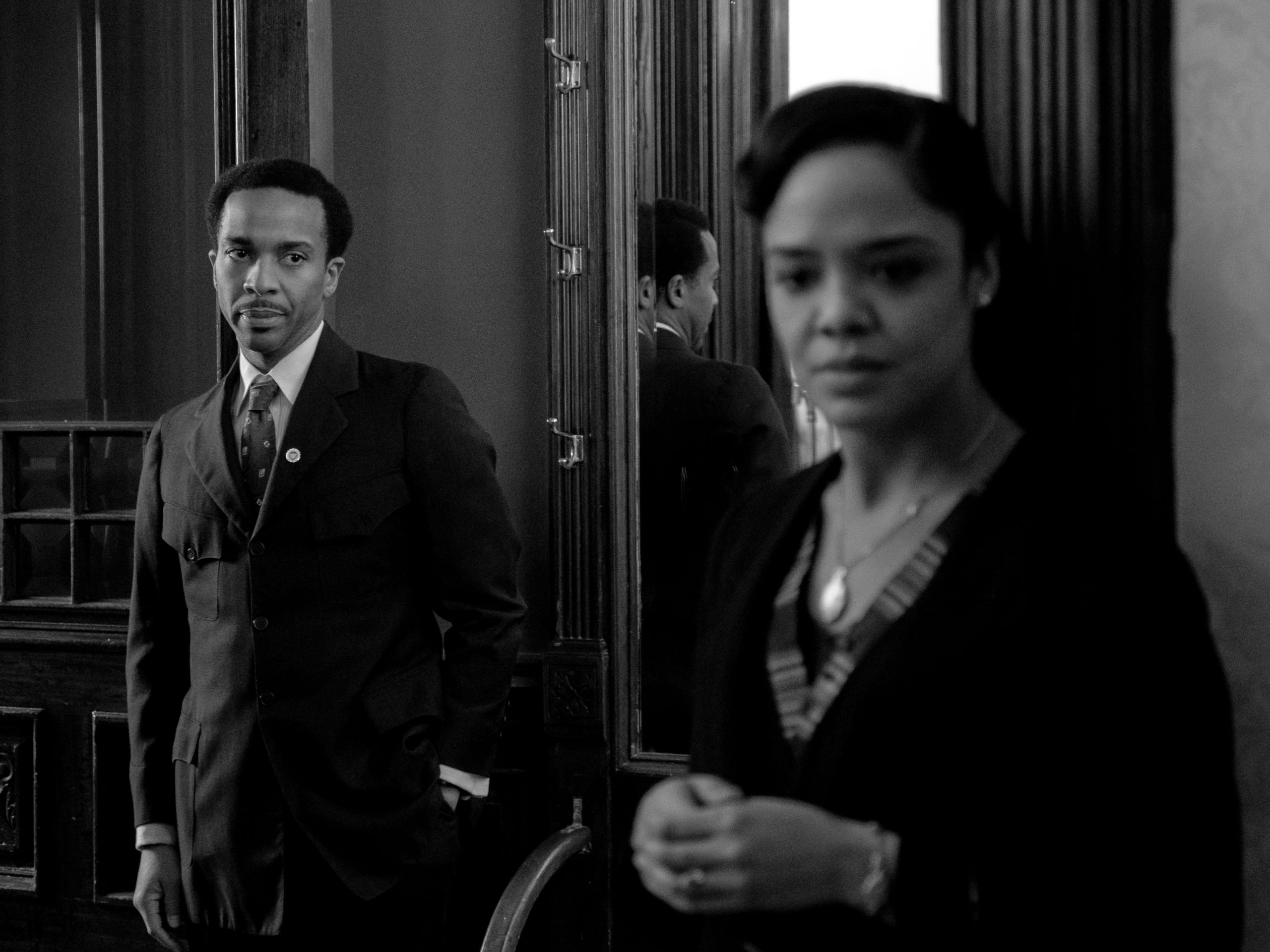
The casting is the film’s finest aspect. It uses the right actors, but more importantly, it extracts just the right skill out of the many they possess. Tessa Thompson and Ruth Negga do play their roles in a way that is interchangeable. However, they are fantastic in an individual way. Tessa, of course, lets us see through the palpable tension and empty contemplation of Irene. However, Ruth Negga is supremely electrifying as the cryptically stylish Clare. The husbands, played by André Holland and Alexander Skarsgård, are minimalistic but extremely impressive supporting actors, delivering somewhat Oscar-bid but entirely worthy performances. Bill Camp’s Hugh is an entertaining revelation.
All said and done, Passing is a fantastic revelation. It’s an enthralling and masterful directorial debut that has the ability to break a heart. Through a tightly knit narrative, it goes beyond discussions on racism and queer acceptance. It morphs into something extremely core-rattling, empathetic, and personal.


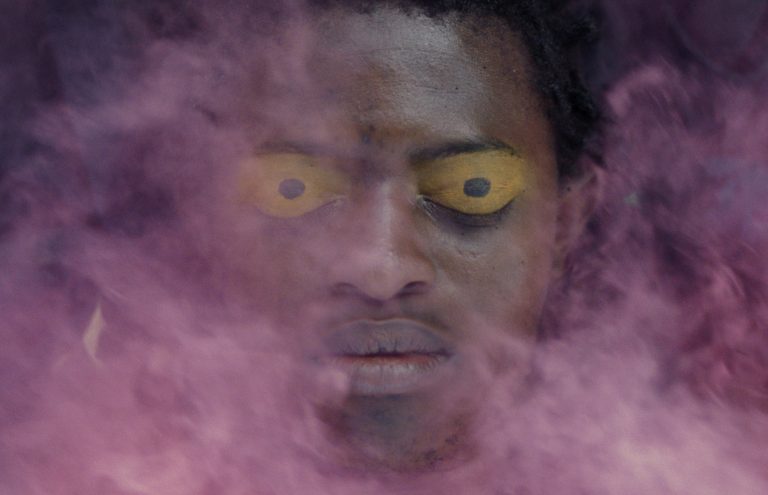
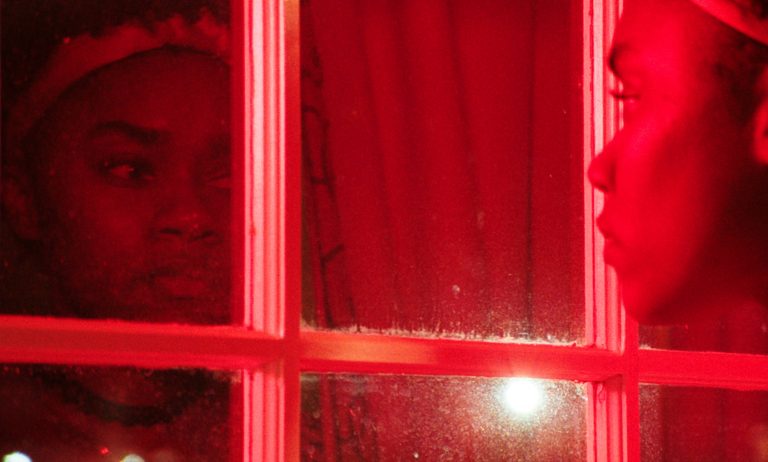
![And Then We Danced [2019] Cannes Review – A Georgian combination of Call Me By Your Name & Whiplash](https://79468c92.delivery.rocketcdn.me/wp-content/uploads/2019/05/and-then-we-danced-high-on-films-768x432.jpg)
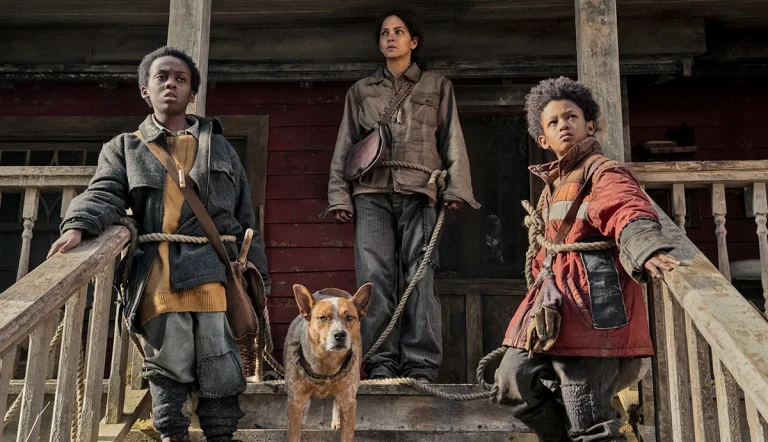

![A Spike Lee Joint: BlacKkKlansman [2018]](https://79468c92.delivery.rocketcdn.me/wp-content/uploads/2018/08/bkkk-768x379.jpg)